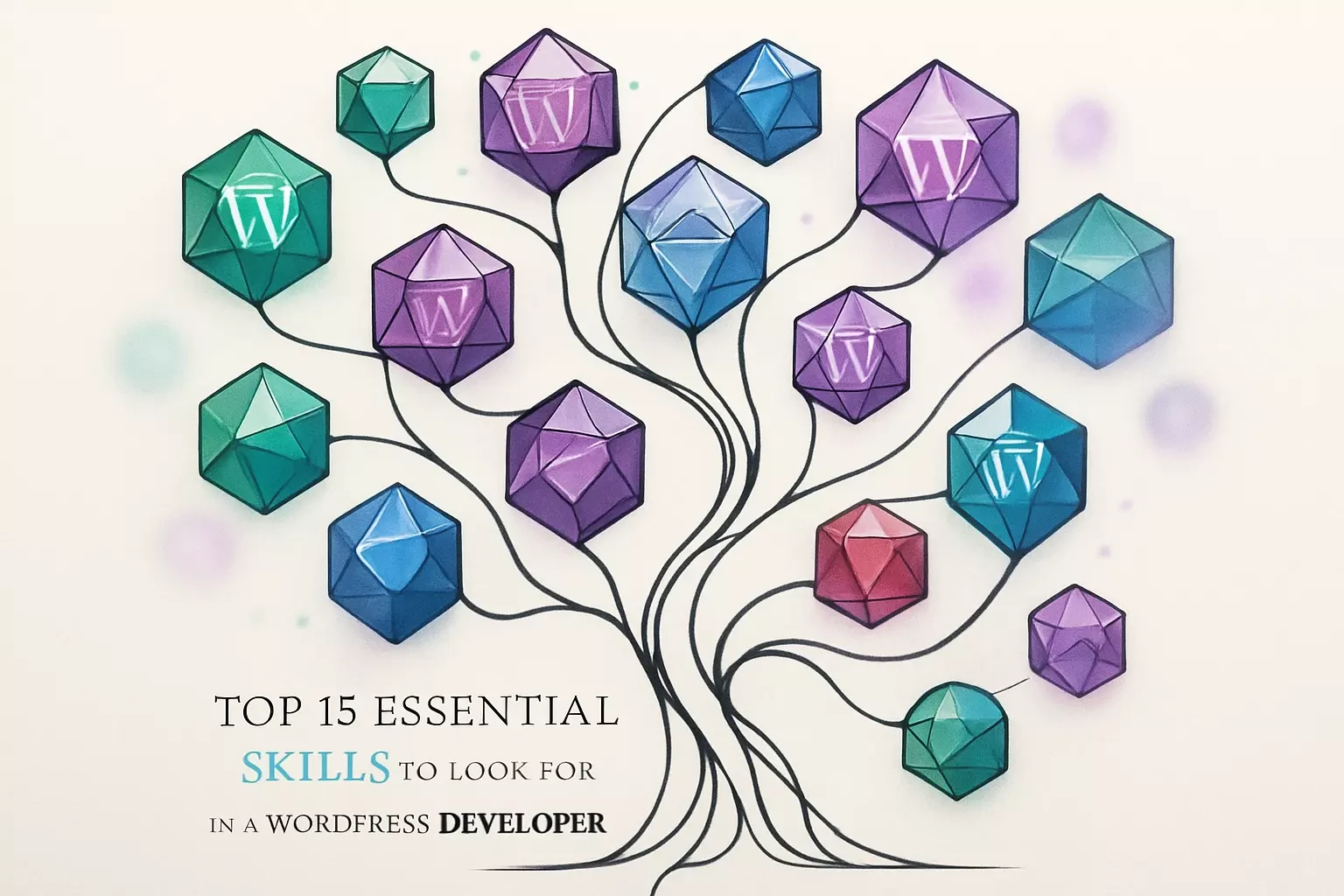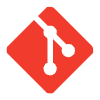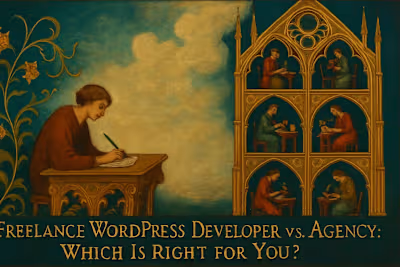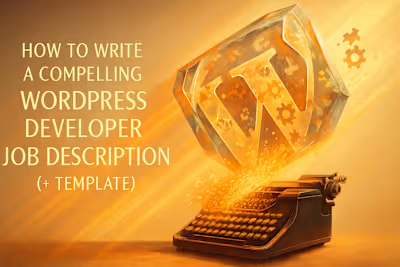Top 15 Essential Skills to Look for in a WordPress Developer

Top 15 Essential Skills to Look for in a WordPress Developer
Core Technical Proficiency
Mastery of PHP
Expertise in HTML5 and CSS3
Proficiency in JavaScript (and jQuery)
Understanding of MySQL and Database Management
WordPress-Specific Skills
Theme and Child Theme Development
Plugin Development and Customization
Knowledge of the WordPress Hook System (Actions and Filters)
Experience with the Gutenberg Block Editor
Familiarity with the WordPress REST API
Crucial Soft Skills and Professional Qualities
Strong Problem-Solving Abilities
Excellent Communication Skills
Attention to Detail
Time Management and Reliability
Essential Supporting Knowledge
Website Security Best Practices
Performance and Speed Optimization
Conclusion
References
Top 15 Essential Skills to Look for in a WordPress Developer
Core Technical Proficiency
Mastery of PHP
wp_query() instead of direct database calls. They sanitize user inputs to prevent security issues. These aren't just nice-to-have skills—they're essential for building sites that last.Expertise in HTML5 and CSS3
!important everywhere.Proficiency in JavaScript (and jQuery)
Understanding of MySQL and Database Management
get_posts() and WP_Query and when to use each one.WordPress-Specific Skills
Theme and Child Theme Development
Plugin Development and Customization
Knowledge of the WordPress Hook System (Actions and Filters)
Experience with the Gutenberg Block Editor
Familiarity with the WordPress REST API
Crucial Soft Skills and Professional Qualities
Strong Problem-Solving Abilities
Excellent Communication Skills
Attention to Detail
Time Management and Reliability
Essential Supporting Knowledge
Website Security Best Practices
Performance and Speed Optimization
Conclusion
References
Posted Jun 15, 2025
Hiring a WordPress developer? Ensure they have these 15 essential technical and soft skills for a successful project. Read our comprehensive guide.













